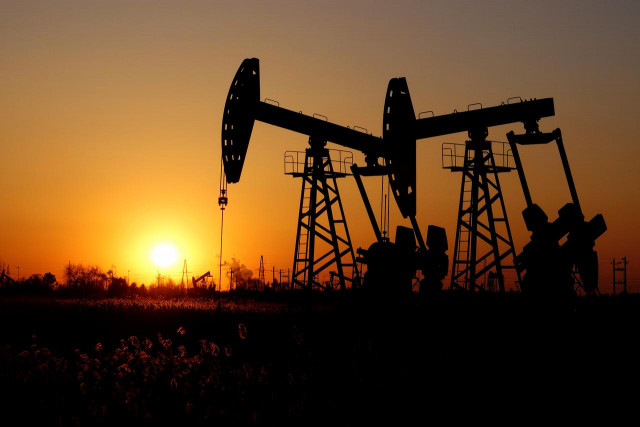Pakistan fails to benefit from oil price crash
Islamabad did not place any oil import orders as its storage is full

PHOTO: REUTERS
Oil prices collapsed to -$37 per barrel for the first time in history in the world market on Monday. It was, however, “good for nothing in case of Pakistan”, Next Capital MD Muzammil Aslam said while talking to a private TV channel. Islamabad failed to place any import orders for oil since its storage capacity was full across the country.
“Pakistan has not imported a single ship of oil in the past one month following the spillover of reservoirs amid a drastic drop in demand for petroleum products, particularly since the Sindh government imposed a lockdown on March 23 to contain the spread of coronavirus,” he said.
Earlier, the government was mulling over placing order for oil import on the futures counter when oil price fell to $30 per barrel in March but later it dropped the idea of oil hedging on fears of a further crash in prices, which came true, it has been learnt.
Later, it considered the idea of getting the oil price insured at around $30 per barrel, meaning that if the price rose above $30, then the insurance company would pay the difference.
It, however, remains unknown whether the government implemented the plan or it was still working on it.
The world is facing an oil glut in the backdrop of the widespread health crisis. Earlier, a price war had erupted between Saudi Arabia and Russia that led to the slump in oil prices.
Pakistan, however, experienced excessive supplies for different reasons. It kept operating outdated refineries and producing high sulphur-containing furnace oil, having low demand which the United Nations’ (UN) International Maritime Organisation (IMO) banned in vessels with effect from January 1, 2020, JS Research analyst Arsalan Ahmed said the other day.
Besides, oil marketing companies like Pakistan State Oil (PSO) opted to import refined petroleum products (petrol, diesel and jet fuel) rather than purchasing them from local refineries as imported products cost less than the locally produced petroleum products.
Furthermore, the government stopped utilising furnace oil for power production after it set up clean energy (re-gasified liquefied natural gas - RLNG)-based power plants in recent years.
Later, a majority from among the five oil refineries in the country temporarily suspended production to cope with the supply glut. However, the demand dropped drastically after the government imposed a lockdown to contain Covid-19 cases nationwide.
Published in The Express Tribune, April 22nd, 2020.
Like Business on Facebook, follow @TribuneBiz on Twitter to stay informed and join in the conversation.



















COMMENTS
Comments are moderated and generally will be posted if they are on-topic and not abusive.
For more information, please see our Comments FAQ